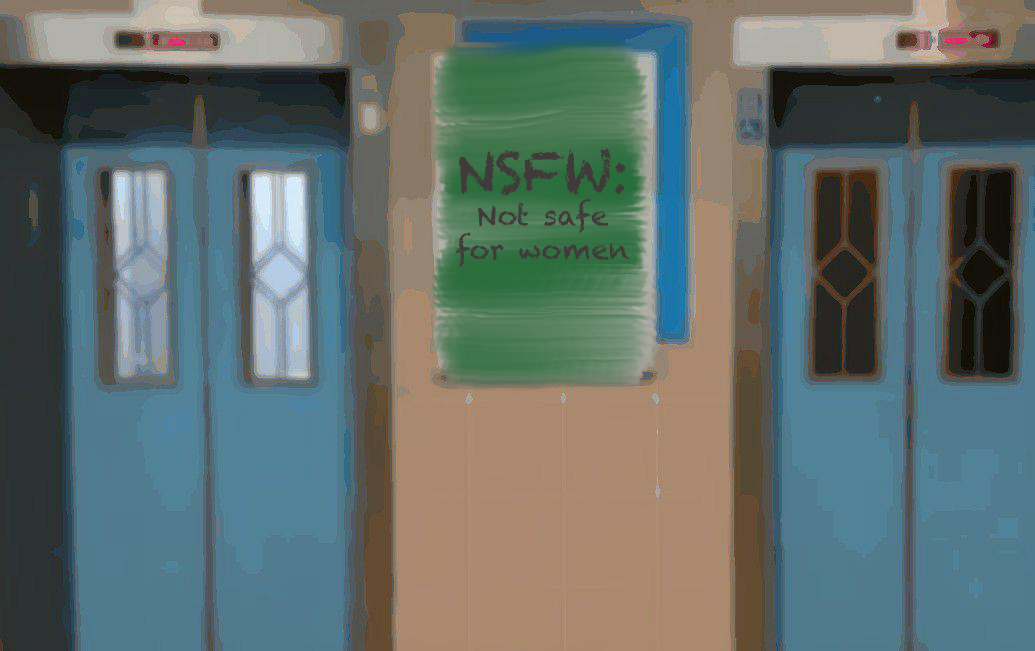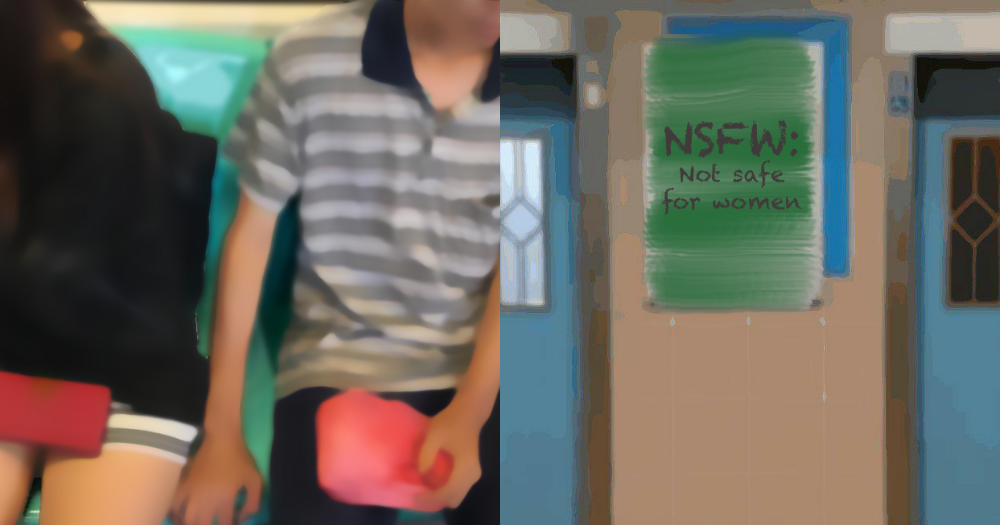Editor's note: We have edited the article to reflect AWARE's update on the definition of sexual assault.
Singapore is generally a safe country.
So much so that in a 2018 Global Law and Order report, 94 per cent of Singaporeans felt safe enough walk alone at night.
Not rid of sex crimes
But even the safest country in the world is not rid of perverted individuals.
And while these may seem like unfortunate one-off events in Singapore, this may not necessarily be the case.
Sex crimes are under-reported
Here are some facts you should know: According to a 2015 survey by the We Can! Campaign, one in six correspondents have reported experiences of sexual assault.
For the uninitiated, here's the definition of sexual assault:
- Any penetration without consent (e.g. vaginal, oral or anal), using any part of the body (penis, fingers) or object.
- Any unwanted sexual touching, stroking, kissing, groping, etc.
- Unwanted sexual requests, messages or gestures, including electronically, in the workplace or elsewhere.
- Being made to view pornography against your will.
- Unwanted taking and/or sharing of nude or intimate photographs or videos, e.g. upskirting.
And most of us have heard cautionary tales from our own siblings, friends, or colleagues.
In the same survey, only six per cent of the respondents went on to seek or receive help, making sexual crimes one of the most under-reported crimes.
Why people don't report sex crimes
As a woman myself, I've had way too many heart-to-heart conversations with my girlfriends about our own sexual assault experiences and the less sensitive among us (read: victim-blamers) may question why something as intolerable goes unreported so frequently.
Others might feel that the onus is on the victim to actively do something about the situation, whether be it to move away or call for help.
But it's not as easy as it sounds, as those who have experienced sexual harassment would know.
From the niggling self-doubt to not wanting to draw attention, these are four reasons why it's difficult to do so.
1) Self-doubt
No one ever anticipates being sexually assaulted, especially not in public.
One of my friends, Jane*, was sitting on a train and was taking a short nap while waiting to arrive at her train station.
A few minutes later, she was rudely awakened when she felt something on her thigh -- it was the hand of a man who was apparently sleeping on the seat next to hers.
 Photo for illustration purposes only. Photo adapted via Winna Chin/Facebook
Photo for illustration purposes only. Photo adapted via Winna Chin/Facebook
"I thought he was in a deep slumber so it probably wasn't his intention to place his hands on my thigh."
So she gently removed his hand and minded her own business.
But that wasn't the end of the story for Jane.
2) Not wanting to draw attention
Just moments later, it happened again.
Jane was in a dilemma: She felt uncomfortable with a stranger's hand on her thigh, but didn't want other train passengers to see her as "overreacting" for calling him out.
So she alighted at the next train station to avoid the situation, but she could never forget the goosebumps she got when it happened the second time around.
It served as a warning to Jane that if such non-consensual actions were done more than once, and if it made her uncomfortable, she wouldn't be "overreacting" by telling the man to stop it.
3) Paralysed by fear
Another friend, however, was absolutely sure that she was molested by a stranger in the lift of her HDB flat.
Unfortunately, Liyana* couldn't bring herself to do anything.
 Photo for illustration purposes only. Photo adapted via Winna Chin/Facebook
Photo for illustration purposes only. Photo adapted via Winna Chin/Facebook
It happened when the lift was going towards the eighth floor -- where the man was going to alight -- while Liyana was going to alight at the 11th floor.
"For some reason, I just couldn't move. He was bigger than me also, so if I did anything he could just hurt me more. It's just scary that it happened so close to home."
For more than a month after the incident, Liyana would get one of her family members to accompany her up or down the lift.
4) Is it too late to report?
It can take days, months or even years before one comes to realise that they've been a victim of sexual assault.
Alas, people like Jane and Liyana would think that it'd be too late to reach out for help because there's a lack of evidence or simply because it happened a long time ago.
But that's not the case -- sexual assault is not the survivor's fault and they have every right to get professional support.
Organisations like the Sexual Assault Care Centre (SACC), can help victims by counselling them to better deal with their emotions and guide them on how they can take action.
No forcing it
Understandably, reporting sexual crimes and seeking help to recover from it is easier said than done.
It is not like putting a band-aid on a wound because sexual assault can truly be a traumatising experience that can affect one's mental health.
Just remember the following:
- Sexual assault is never the victim's fault.
- Victims can take action whenever they're ready.
- There will always be avenues for victims to seek help
Top photo adapted from Winna Chin's image
If you like what you read, follow us on Facebook, Instagram, Twitter and Telegram to get the latest updates.
